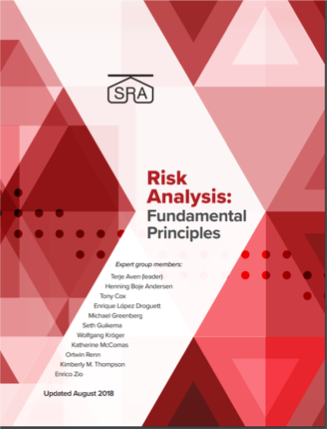
Risk Analysis Fundamental Principles
Fundamental Principles provides authoritative guidance on the fundamental principles to be adopted when conducting risk analysis to obtain high quality and trustworthy risk analysis.
Approaches and methods for risk analysis are now applied all over the world and in most societal sectors, and many advances have been made on different topics of risk analysis over the years. However, risk analysis is not broadly recognized as a separate/distinct science.
The fundamental principles are necessary to ensure that risk analysis applications and training can progress to from a scientifically solid platform. It is always a challenge to balance the need for authoritative guidance and solutions on the one hand, and the need for continuous debate, research and improvement on the other.
Risk Analysis: Fundamental Principles acknowledges the importance of this balance, and is focused on high level principles. The document is built on the risk analysis literature providing analytic arguments on how to conduct risk analysis, also reflecting the authors’ insights on these issues obtained from both practical experience and theoretical work.
The target audience for the document is:
- All individuals who have an interest in risk analysis
- Risk analysis professionals and practitioners
- Researchers
- Students
- Decision and policy makers
- Regulators
- Journalists
- Curious lay people who would like to get an overview of what the fundamental principles are to ensure prudent risk analysis.
